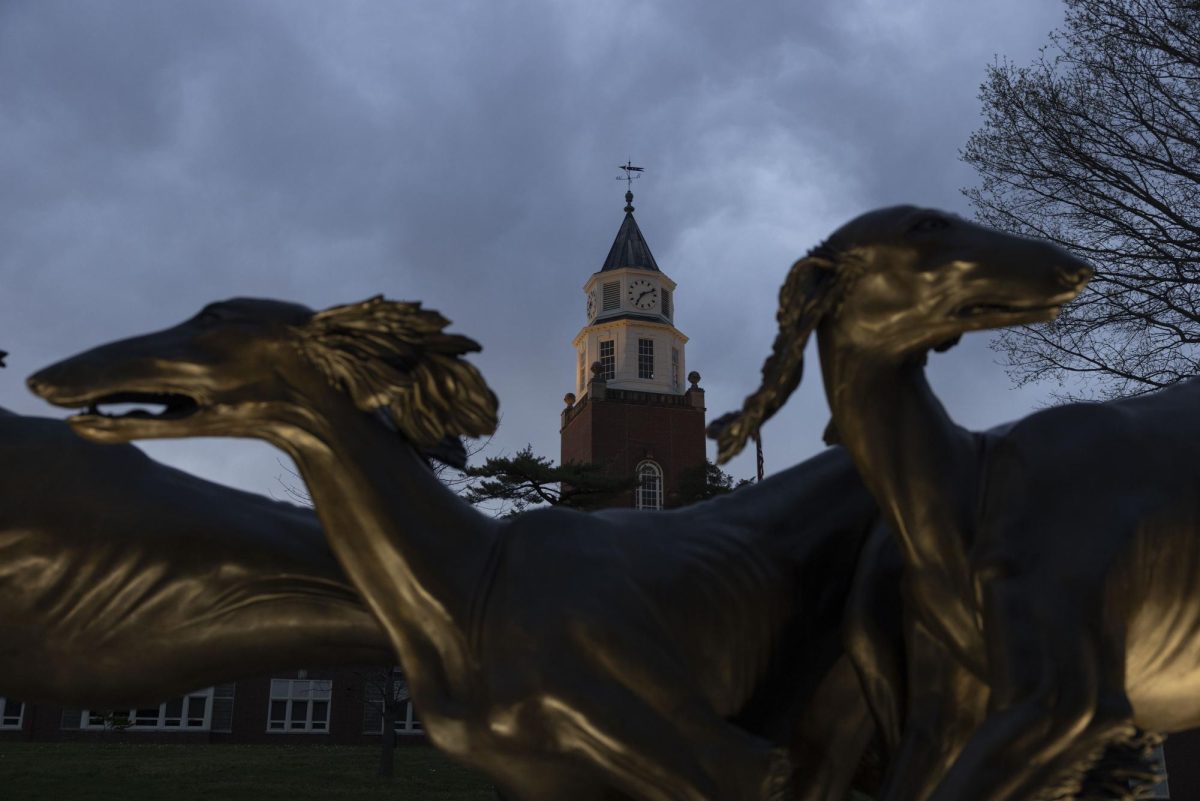Ramadan – Month of Faith and Fasting
January 23, 1998
As Ehrab Hussain celebrates Ramadan, he longs for sunset so he can have his first bite of food since sunrise.
I feel satisfied at the end of the day with being able to have food, Hussain, a senior in health care management from Pakistan, said. After fasting you know that God will give you a reward in the hereafter.
In Arabic, Ramadan means a month of fasting. Muslims who celebrate Ramadan not only refrain from eating during this time, but they also avoid drinking, sexual activity and other sins of the Islamic faith.
Advertisement
Fasting provides a better understanding of what it is like to live without food, as well as a closer bond with God, or Allah.
Mohammad Khan, a graduate student in electrical engineering from Pakistan, has celebrated Ramadan in America for six years. He said fasting is one of the most important parts of Ramadan.
Fasting is challenging, he said. At the end of the evening, there is a little weakness, but it’s not that bad.
There are more than 1 billion Muslims in the world. Ramadan has provided a worldwide focus for these people since Dec. 29. This year’s celebration is expected to end late next week.
Ramadan begins with the sighting of a new moon, and lasts from 28 to 30 days. Because an Islamic year is based on the lunar cycle, the time of Ramadan varies.
The end of Ramadan is commemorated by celebrating Eid al-Fitr, also known as the night of power.
You get a big reward when fasting is over, Hussain said. Your blessing is multiplied by a thousand.
Advertisement*
Muslims who are sick, pregnant, elderly or traveling do not have to fast, but, they are required to make up Ramadan at a time when they are able to fast.
Fasting became an obligation for Muslims, after the prophet Muhammad had fasted for nine years of Ramadan.
Ramadan is derived from the Arabic root word ramida which means intense scorching heat and dryness. Ramadan can also mean the hearts and souls readily receptive warning and remembrance of Allah.
Fasting during Ramadan supports the five pillars of Islam. The pillars include believing in Allah and his prophet, Muhammad, prayer, charity, and pilgrimage. These five pillars are followed by all Muslims.
To lessen the chance of sexual activity during Ramadan, physical contact between non-family members is prohibited. Khan said contact with women has to have a purpose and cannot merely be social.
If you associate with women during Ramadan, it increases the chance of accidental physical contact, he said. If you have physical contact, it increases the desire for sex. I really can’t talk to women outside of the family during Ramadan.
Khan limits his communication with women only to matters concerning his classes.
Unlike the ban on physical contact, there is a daily respite from fasting. After sunset the fast is broken by eating dates, which is what the prophet Mohammed broke his fast with.
Muslims are to pray five times a day during Ramadan. Before prayer, Muslims have to cleanse their whole body. Praying helps many divert their attention from food.
Because of busy class schedules, there is not always time for Muslim students to pray five times during the day. But the day’s first and last prayers occur before sunrise and sunset.
Hussain said that he tries to pray as much as possible, but it is difficult for him as a student. His faith allows him to fulfill the obligations of Ramadan.
There is no excuse to miss the first and last prayer of the day, he said. If you have the time, you should pray.
Advertisement








